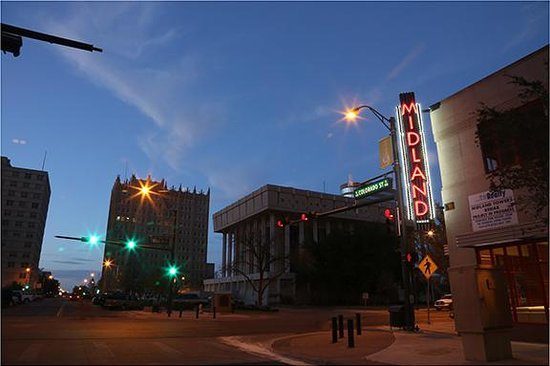In the heart of the dry and dusty West Texas oil fields rests the city of Midland. For most outsiders, Midland is best known as the childhood home of former President George W. Bush and former First Lady Laura Bush. At the turn of the millennium, however, the quiet, industrious town halfway between Fort Worth and El Paso set off a firestorm of activism. Deborah Fikes was the unassuming teacher, wife and mother who lit the spark.
After George W. Bush was elected President, he made frequent references to Midland. “If you really want to understand me,” he would tell reporters. “Go back to my roots.” And they did. Reporters flooded Midland, and Fikes recognized an opportunity. “Churches in Midland had one of the most unique opportunities to plug in at a high level. If they got involved, they would have the ear of the President and could make a difference.”
For Fikes, the obvious issue was to elevate the plight of believers persecuted for their faith. For years she had been reading literature from the Voice of the Martyrs. She prayed and wrote letters to Congress on behalf of the persecuted but felt frustrated that she couldn’t do more — until a Texas favorite son entered the White House. “I did not have a grand plan,” says Fikes, who simply wanted to leverage the sudden media attention and newfound access to the President of the United States. “I wanted the pastors to raise the issue of the persecuted church and get their congregations involved.”
She approached the Midland Ministerial Alliance (MMA), a loose network of area churches, to host to the 2001 International Day of Prayer for the Persecuted Church (IDOP). The flagship event drew more than 40 local churches and thousands of participants and got the attention of national leadership in Washington, D.C.
The many others who also helped these efforts include Larry Long and Rev. John Stasney.
Midland became an epicenter for church mobilization — a practical response to religious persecution and civil rights abuses around the world.
In 2001, just one month before 9/11, 32,000 evangelical youth invaded Midland, Texas. Drawn to a Christian music festival called “Rock the Desert,” they clapped and danced to the rock anthems of Newsboys and Skillet. Festival organizers also highlighted a social and diplomatic crisis in Sudan, then a war zone with one of the worst global records of religious persecution and human rights violations perpetrated by the Sudanese government and Janjaweed Arab militias. Over the next several years, as the attendance exceeded 90,000, organizers built a mock slave cell and an authentic Sudanese village and handed out promotional material on the Sudan Peace Act.
This was followed by participation in a weeklong prayer vigil for Sudan in Washington, DC.
Without a doubt, Midland’s citizen ambassadors helped push the Sudan Peace Act through Congress in 2002.
Support from Midland also helped fund a center in Thailand for women and children at risk for sexual exploitation, and continue to support countless churches, schools and other projects in places like Sudan, North Korea, and China where persecution is extreme. Many ministries working on the frontlines of religious persecution have made Midland home base, including the China Aid Association (Bob Fu) and Watch and Pray International (Getaneh Getaneh). And many on 21Wilberforce’s Board of Directors that have advised and provided support to this organization during the last 10 years live in Midland.
For 25 years, Midland’s mighty faith community has rolled up its sleeves to combat religious persecution and influence U.S. foreign policy, not from the halls of Congress, but from the pews and the public square. As one observer noted about Midland, “God used a lot of normal people” to do extraordinary work. And as Deborah Fikes would earnestly note, this work has been important not just for Christians, but for all religious faiths and freedoms. As such, the arid oil-patch town of Midland has proven to be fertile ground for some of the most important and far-reaching applications of the policies and outreach inspired by the International Religious Freedom Act.
Click HERE to watch a video tribute to the residents of Midland, Texas

